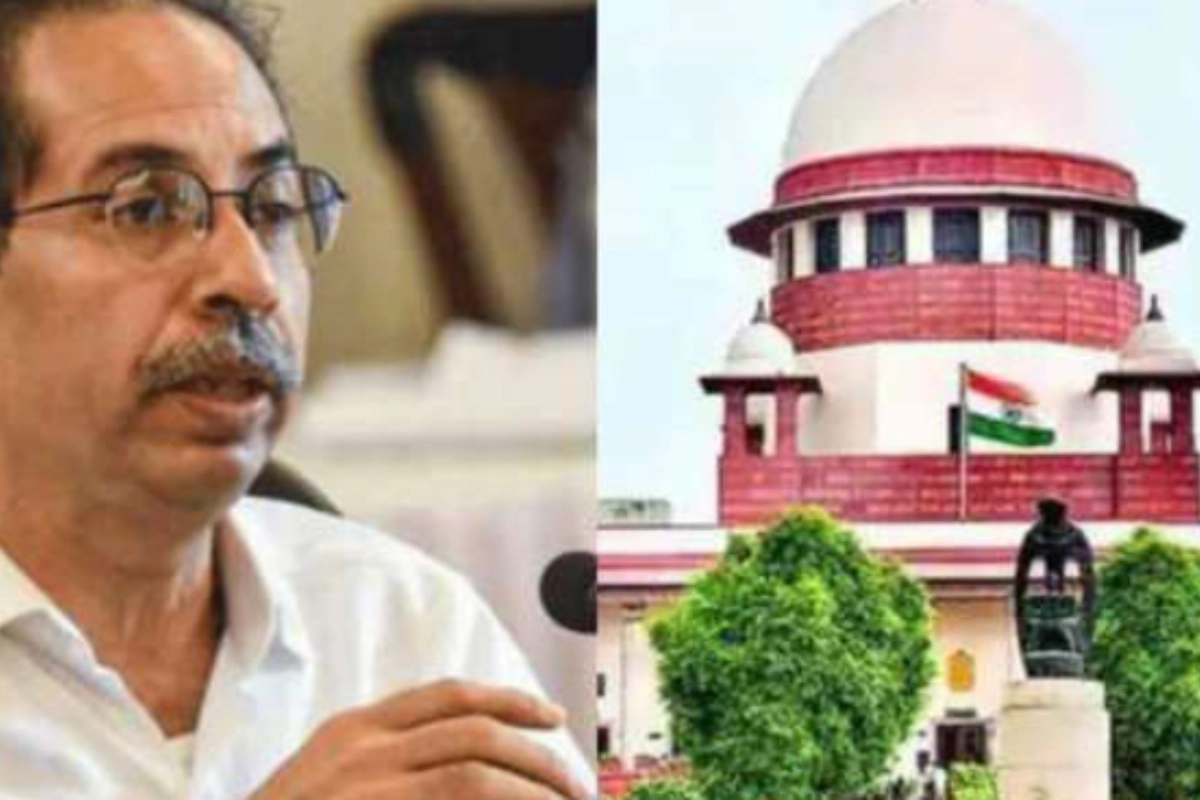Uddhav Thackeray: The Supreme Court pondered on Thursday how it could reinstate the Uddhav Thackeray government in Maharashtra when the chief minister had filed his papers even before facing the floor test, after the faction led by him pitched for overturning the governor’s June 2022 order to the CM to take a floor test. The Thackeray side urged the court to turn back the clock and restore the “status quo ante” (previously existing state of affairs), as it had done in 2016 when it reinstated Nabam Tuki as the chief minister of Arunachal Pradesh.
Supreme Court hears arguments on reinstating Uddhav Thackeray government in Maharashtra
Senior lawyer Kapil Sibal, representing the Thackeray bloc, urged a five-judge constitution bench led by Chief Justice D Y Chandrachud to overturn governor B S Koshyari’s order for a floor test, a day after the top court questioned his conduct in calling for a trust vote based solely on differences among Shiv Sena MLAs. The bench took note of senior counsel AM Singhvi’s comments, who was also representing Uddhav Thackeray, and quipped “So, according to you, what are we doing? Will you be reinstated? However, you resigned. That’s like asking the court to reinstall a government that quit before the floor test.”
Court questions how it can reinstate a chief minister who resigned before facing floor test
The bench, which also included Justices MR Shah, Krishna Murari, Hima Kohli, and PS Narasimha, asked Singhvi, “How can the court reinstate the chief minister, who did not even face the floor test?” During the course of nine working days, the Supreme Court heard arguments from both sides and the governor, who was represented by Solicitor General Tushar Mehta.
Singhvi cites 2016 Nabam Tuki decision to support Thackeray’s case
While Mr Sibal, Mr Singhvi, Davadutt Kamat, and Amit Anand Tiwari represented the Thackeray camp, senior counsel N K Kaul, Mahesh Jethmalani, and Maninder Singh supported the Shinde faction. During the day-long hearing, Singhvi pointed to the circumstances leading up to the Thackeray government’s resignation and stated, “My resignation is meaningless. Your lordships are not reinstalling anyone, but rather restoring the previous status quo.” He pointed to the 2016 Nabam Rebia decision, in which the Supreme Court reset the political clock in Arunachal Pradesh by reinstalling Tuki as chief minister and deposing the BJP-backed Kalikho Pul administration.
Sibal argues democracy at stake, urges court to grant petition and vacate governor’s order
The senior lawyer called the development a “red herring,” noting that the subject was under consideration at the Supreme Court before the governor ordered the floor test. “So you’re saying Thackeray resigned just because the governor summoned him to face the floor test?” the court inquired. Singhvi responded in the affirmative, stating that while the case was still in court, the governor’s subsequent instruction for the floor test should not have been authorised. “You’re honestly accepting that you resigned because the trust vote would have gone against you,” the CJI joked. Sibal, representing the Thackeray alliance, sought the bench to overturn the decision, which came a day after the Supreme Court ruled such action by the governor might collapse an elected government and that the governor of a state cannot lend his office to achieve a specific objective. Sibal concluded his rejoinder remarks by saying that this is a moment in the history of this court when the future of democracy will be decided. “Without the intervention of this court, I am certain that our democracy will be jeopardised since no elected government will be allowed to exist. With this hope, I beseech this court to grant this petition and vacate the governor’s order (of floor test) “Sibal stated.
DON'T MISS
Background on 1976 P N Bhagwati judgement and political crisis in Maharashtra
The contentious 1976 judgement, delivered by P N Bhagwati during the Emergency period of June 25, 1975 to March 21, 1977, stated that a person’s right not to be unlawfully detained (habeas corpus) might be suspended in the interest of the State. After an open revolt in the Shiv Sena, a political crisis arose in Maharashtra, and on June 29, 2022, the Supreme Court refused to delay the Maharashtra governor’s order to the 31-month-old MVA administration to take a floor test in the assembly to confirm its majority.
Must Read: Microsoft introduces AI co-pilot for developers, Power Apps just got even smarter
Election Commission recognised the Shinde group as the true Shiv Sena
Uddhav Thackeray resigned in the face of looming loss, opening the way for Eknath Shinde to become chief minister. On February 17, 2023, the Election Commission recognised the Shinde group as the true Shiv Sena and assigned it the original bow and arrow electoral symbol of the party created by Balasaheb Thackeray. On August 23, 2022, a three-judge bench of the Supreme Court, led by then-chief justice N V Ramana, formulated several legal questions and referred to the five-judge bench petitions filed by the two Sena factions, which raised several constitutional issues concerning defection, merger, and disqualification.
Keep watching our YouTube Channel ‘DNP INDIA’. Also, please subscribe and follow us on FACEBOOK, INSTAGRAM, and TWITTER.
